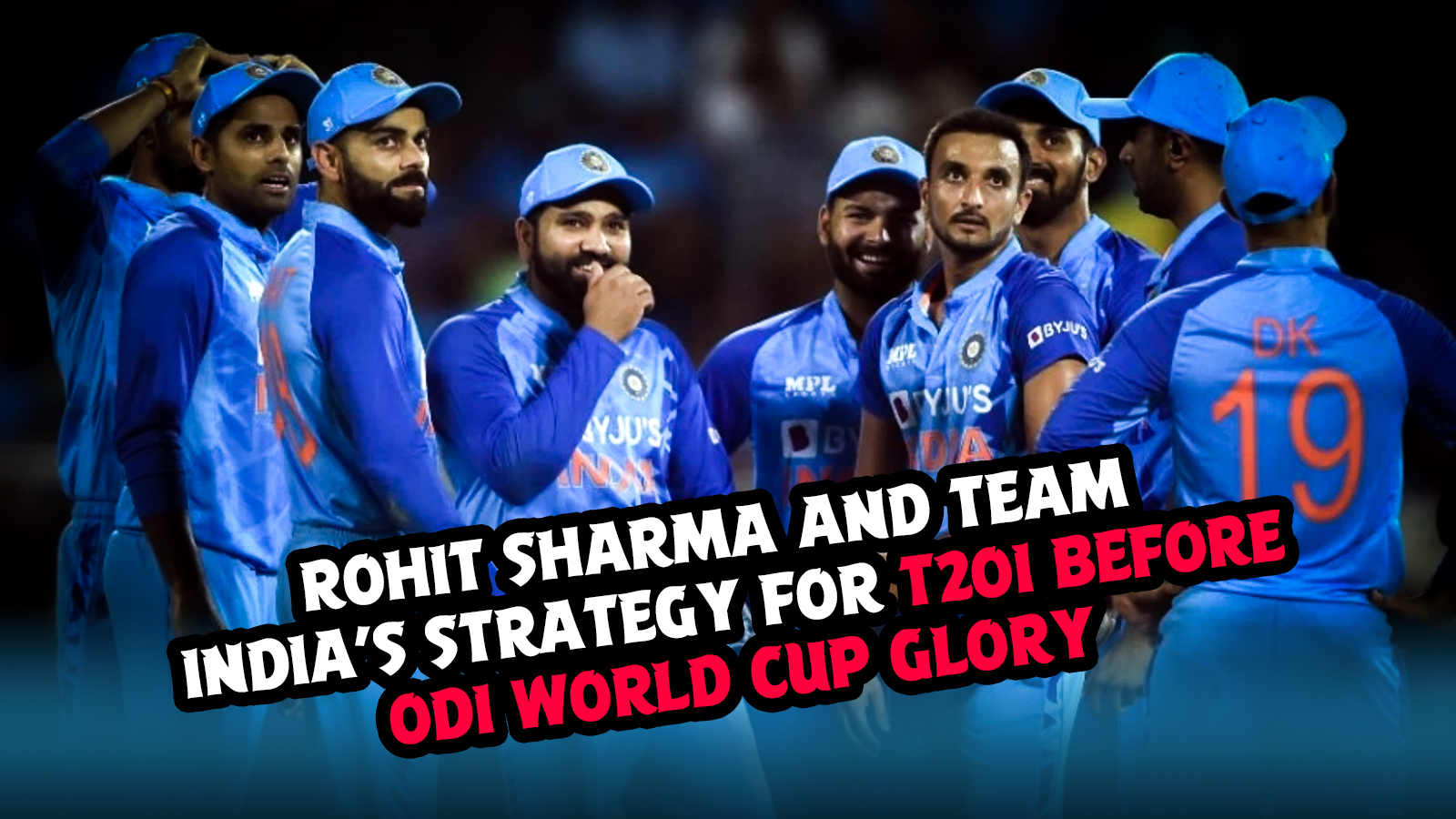Rohit Sharma Unveils T20I Strategy: Elevating Workload for ODI World Cup Glory
In a move that has sparked both curiosity and concern among cricket enthusiasts, Rohit Sharma, the acclaimed batsman and designated skipper of the Indian National Cricket Team, has finally shed light on the ongoing absence of several top players, including himself, from the T20 International (T20I) format. This strategic decision, he revealed, is geared towards preserving player fitness and optimizing performance for the impending One Day International (ODI) World Cup.
Balancing Formats: A Delicate Juggling Act
Rohit Sharma’s absence from the T20I arena has raised eyebrows, particularly in light of the Indian team’s recent struggles against the West Indies in the shortest format. Alongside fellow stalwarts Virat Kohli and Ravindra Jadeja, Rohit has been missing from T20I action since the conclusion of the 2022 T20 World Cup. Addressing the mounting inquiries, Rohit candidly admitted, “At the moment I think it was made clear in the past that it’s a 50-over World Cup year for us. And for some of the guys, it’s not possible to play all formats.”
Prioritizing Rest: The Backbone of Performance
Rohit’s comments allude to the concept of “workload management,” a topic that has increasingly gained prominence within the Indian cricketing sphere. With marquee players like Rohit Sharma, Virat Kohli, Ravindra Jadeja, and Mohammed Shami integral to India’s ODI World Cup aspirations, the selectors have taken a proactive approach in safeguarding their fitness. The cricketing calendar’s demanding nature, rife with back-to-back matches, has led the management to make calculated choices to ensure players receive ample rest.
Rohit Sharma’s Viewpoint: Balancing the Scales
Speaking at an event in the United States of America, Rohit elaborated on the decision, stating, “If you look at the schedule, there were back-to-back matches, so we decided on just looking at some players’ workload that we wanted to make sure that they get enough break time and manage them. I definitely fall in that (category) as well.” This perspective underscores the team’s commitment to fostering peak performance, even if it means temporary absences from certain formats.
The Implications and the Future
In the absence of Rohit Sharma, Hardik Pandya has taken the reins of the Indian team in T20Is. Speculation has also arisen that Pandya could potentially be appointed as the full-time T20I captain following the culmination of the ODI World Cup. This shift could signal a broader change in the team’s dynamics, emphasizing the importance of nurturing fresh leadership.
As the cricketing fraternity eagerly anticipates the upcoming ODI World Cup, it is evident that the Indian National Cricket Team is resolutely focused on its long-term vision. Rohit Sharma’s candid revelation sheds light on the intricate balance between managing player workloads and delivering exceptional performances on the global stage. With strategic decisions underpinning the team’s preparations, all eyes are on India’s cricketing stars as they gear up to script another chapter of sporting history.
